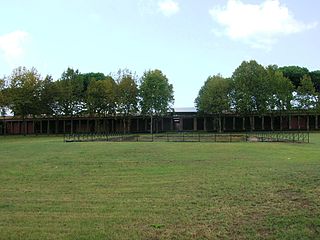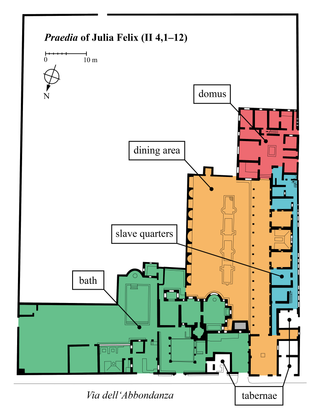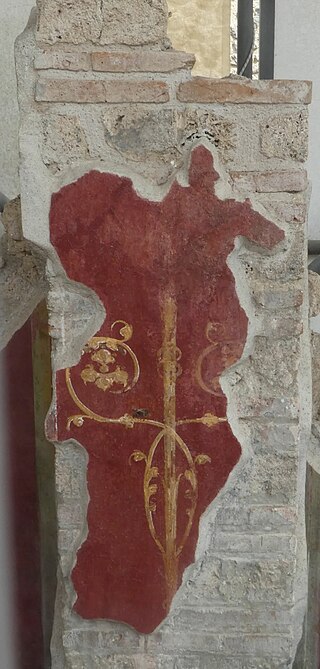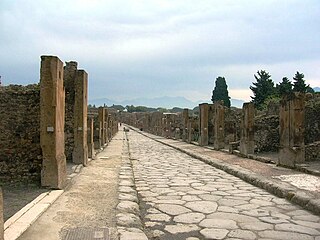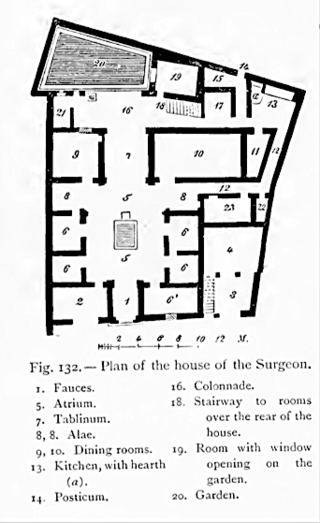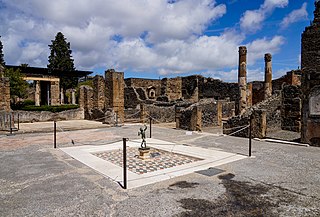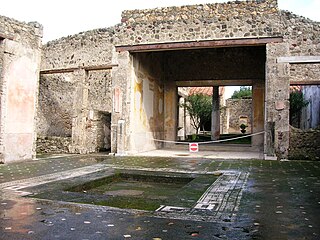Self-guided Sightseeing Tour #3 in Pompei, Italy
Legend
Tour Facts
2.8 km
38 m
Experience Pompei in Italy in a whole new way with our free self-guided sightseeing tour. This site not only offers you practical information and insider tips, but also a rich variety of activities and sights you shouldn't miss. Whether you love art and culture, want to explore historical sites or simply want to experience the vibrant atmosphere of a lively city - you'll find everything you need for your personal adventure here.
Individual Sights in PompeiSight 1: Palestra Grande
The large gym, located in Regio II, is a Roman gym, buried by the eruption of Vesuvius of 79 and found following the archaeological excavations of ancient Pompeii: its name derives from the fact that it was the greatest gymnastic system of the city.
Sight 2: Regio II
The list includes the monuments present in Regio II of the archaeological excavations of Pompeii.
Sight 3: House of Julia Felix
The House of Julia Felix, also referred to as the praedia of Julia Felix, is a large Roman property on the Via dell'Abbondanza in the city of Pompeii. It was originally the residence of Julia Felix, who converted portions of it to apartments available for rent and other parts for public use after the major earthquake in 62 AD, a precursor to the eruption of Mount Vesuvius in 79 AD that destroyed Pompeii.
Sight 4: Casa di Octavius Quartione
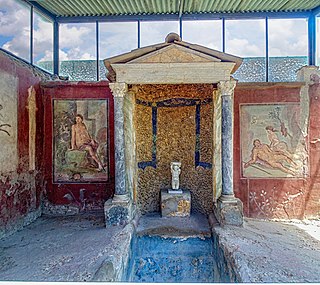
The House of Loreius Tiburtinus is renowned for well-preserved art, mainly in wall-paintings as well as its large gardens.
Sight 5: Regio III
The list includes the monuments present in Regio III of the archaeological excavations of Pompeii.
Wikipedia: Regio III degli scavi archeologici di Pompei (IT)
Sight 6: Schola Armaturarum
The Schola dashboard was a meeting house in Pompeii. It was excavated by Vittorio Spinazzola in 1915. The building consisted of a hall and some rooms behind it that still came from a predecessor building when a private house was here. The Schola Kingdarum probably served as a place of assembly of a military organization shortly before the fall of the city. During the excavations, there were numerous weapons that were once housed on shelves along the walls. The wood of the shelves had already passed largely during the excavations, but holes were still seen on a wall for the shelves. The wide entrance was once blocked with a wooden grille that could be reconstructed due to plaster casts. The wood of the grid had long passed, but left a cavity that was filled with plaster during the excavations. The pillars on both sides of the entrance were painted with trophies and weapons. Wall paintings with military badges and candelabries were also found inside the hall.
Sight 7: Regio I
The list includes the monuments present in Regio I of the archaeological excavations of Pompeii.
Sight 8: Regio IX
The list includes the monuments present in Regio IX of the archaeological excavations of Pompeii.
Sight 9: Pompeii
The archaeological excavations of Pompeii have returned the remains of the ancient city of Pompeii, near the hill of Civita, at the gates of modern Pompeii, buried under a blanket of ashes and lapilli during the eruption of Vesuvius in 79, together with Herculaneum, Stabia and Oplontis.
Sight 10: Regio VII
The list includes the monuments present in Regio VII of the archaeological excavations of Pompeii.
Wikipedia: Regio VII degli scavi archeologici di Pompei (IT)
Sight 11: Casa del chirurgo
The House of the Surgeon is one of the most famous houses in the ancient Roman city of Pompeii and is named after ancient surgical instruments that were found there. Along with the rest of the city, it was buried and largely preserved under 4 to 6 m of volcanic ash and pumice in the Eruption of Mount Vesuvius in 79 AD.It was excavated in 1770 by Francesco La Vega.
Sight 12: Regio VI
The list includes the monuments present in Regio VI of the archaeological excavations of Pompeii.
Sight 13: Casa dei Dioscuri
The House of the Dioscuri is a Roman house, buried by the eruption of Vesuvius in 79 and found following the archaeological excavations of ancient Pompeii: it is one of the largest and best decorated houses in the city and owes its name to a painting located at the entrance, depicting the Dioscuri Castor and Pollux, now preserved in the National Archaeological Museum of Naples.
Sight 14: House of the Labyrinth
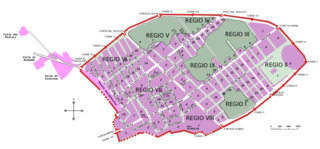
The House of the Labyrinth is a domus of Pompeii, largely dated to the Republican period.
Sight 15: House of the Faun
The House of the Faun, constructed in the 2nd century BC during the Samnite period, was a grand Hellenistic palace that was framed by peristyle in Pompeii, Italy. The historical significance in this impressive estate is found in the many great pieces of art that were well preserved from the ash of the eruption of Mount Vesuvius in 79 AD. It is one of the most luxurious aristocratic houses from the Roman Republic, and reflects this period better than most archaeological evidence found even in Rome itself.
Sight 16: Casa di Cecilio Giocondo
The house of Lucius Caecilius Giocondo is a house from the Roman era, buried during the eruption of Vesuvius in 79 and found following the archaeological excavations of ancient Pompeii.
Sight 17: Regio V
The list includes the monuments present in Regio V of the archaeological excavations of Pompeii.
Share
How likely are you to recommend us?
Disclaimer Please be aware of your surroundings and do not enter private property. We are not liable for any damages that occur during the tours.
GPX-Download For navigation apps and GPS devices you can download the tour as a GPX file.
